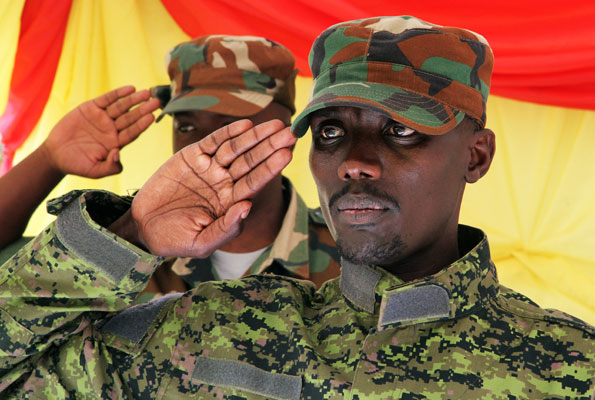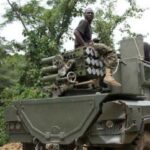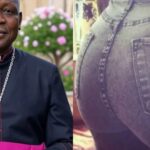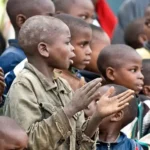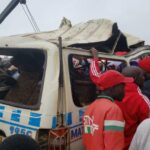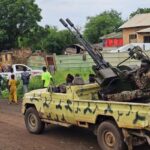General Sultani Makenga, the leader of the M23/ARC rebel movement, pledges to overthrow what he refers to as the corrupt government of President Félix Tshisekedi. He says the group’s growing military strength is aimed at ending poor governance and restoring dignity to the Congolese people.
Makenga made these remarks on Wednesday, October 1, 2025, during a graduation ceremony for more than 9,350 newly trained commandos in Tchanzu, a mountainous area under rebel control in North Kivu Province.
The event, which initially goes unnoticed, gains public attention on Saturday night when the M23/ARC releases a 13-minute video on its official YouTube channel. The footage shows thousands of newly trained fighters marching in formation, chanting slogans, and performing drills under the supervision of senior commanders.
The video quickly spreads across social media platforms in the Democratic Republic of Congo, becoming the first clear evidence of the large-scale graduation. It raises concern among regional observers about the growing military capacity of the rebel movement, despite ongoing international appeals for calm and dialogue.
The ceremony in Tchanzu is attended by senior M23 officers and local administrators supportive of the group. It features long rows of uniformed fighters performing parades and drills, demonstrating the scale of M23’s recent recruitment and training efforts.
During his speech, Makenga says that the M23/ARC has risen to end poor governance and bring lasting change to the country. He explains that the group’s main goal is to build the strength needed to remove what he calls a corrupt regime led by President Tshisekedi and to establish a nation that respects the rights and hopes of its citizens.
He adds that the newly graduated commandos are part of a broader effort to form a professional and disciplined force capable of defending civilians in eastern Congo, where insecurity and neglect by the central government have persisted for many years.
Makenga’s statements come at a time of increased international pressure for de-escalation in the Great Lakes region. The United Nations, African Union, and mediators from the United States, Qatar, and Togo continue to urge all armed groups to end hostilities and support the peace process launched in June 2025 under U.S.-led mediation.
Earlier in the week, the Joint Oversight Committee for the DRC-Rwanda Peace Agreement held a meeting in Washington, D.C., where it reaffirmed its commitment to neutralizing armed groups such as the M23 and the Forces Démocratiques de Libération du Rwanda (FDLR). The committee also approves the start of an operational plan under the Joint Security Coordination Mechanism to implement security measures and promote disengagement of forces.
The Congolese government in Kinshasa continues to accuse Rwanda of providing military and logistical support to the M23 rebels, a claim that Rwanda repeatedly denies. Kigali insists that its actions are purely defensive, aimed at countering incursions from the FDLR, a militia that includes elements linked to the 1994 Rwandan genocide.
The M23, which resurfaces in late 2021 and captures large parts of North Kivu between 2022 and 2023, continues to ignore repeated ceasefire calls. The group maintains that it is fighting for the political inclusion of Congolese Tutsis and for broader governance and security reforms.
Makenga’s latest declaration, openly promising to overthrow the government, signals a more aggressive stance by the M23 at a time when regional and international actors are pushing for restraint. The renewed militant rhetoric threatens to undermine the fragile peace process and could further worsen instability in eastern DRC, where more than seven million people remain displaced by ongoing conflict.
